
Browse our fun-packed, helpful plant-based articles, and delve deeper into this healthy, sustainable lifestyle!


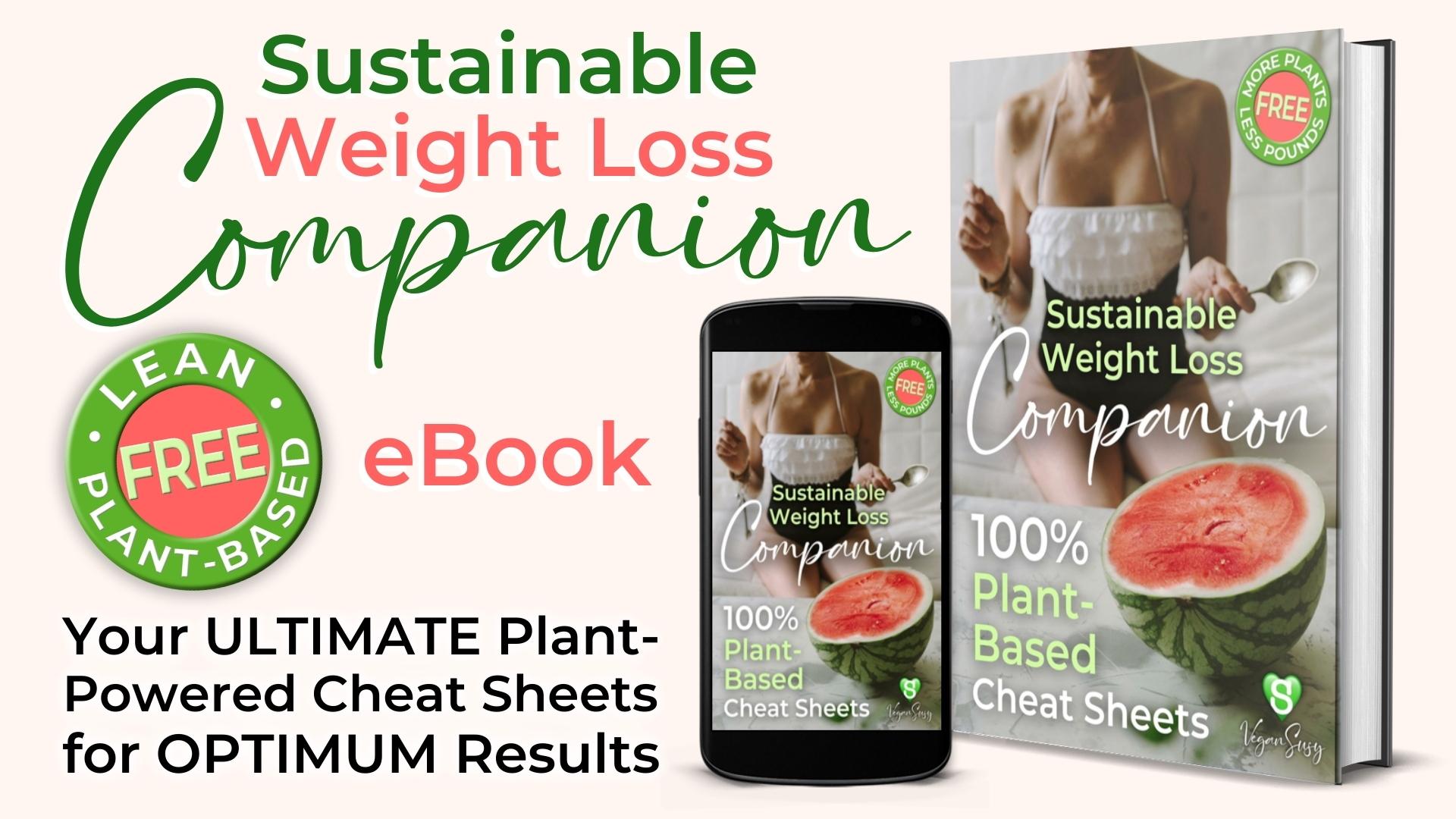
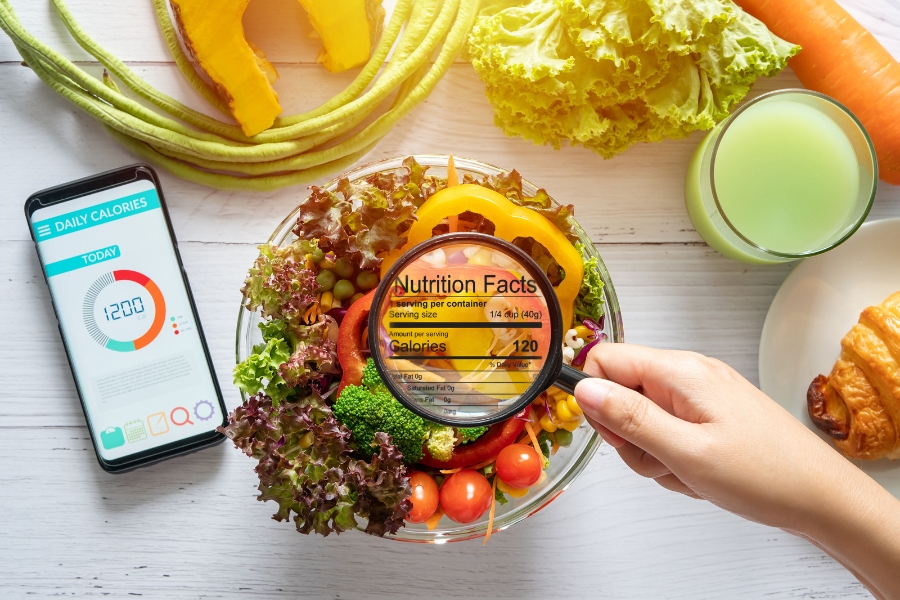
Plant-Based Truths: Busting 10 Common Myths About Going Vegan
Plant-Based Lifestyle Tips For Women
Author: Plant-Based Susy
What we eat shapes and is shaped by who we are
We've noticed a big change in how veganism is viewed now compared to a decade ago. For one thing, there’s far less eye-rolling and one-liner retorts when people say they’re trying plant-based eating!
This growing enthusiasm for a meatless lifestyle is likely down to increasing worries about our struggling world and sustainability, celebrity support, and Netflix doccies like You Are What You Eat and The Game Changers.
But even with the boosted awareness and interest, plant-based diet myths circulate on social media, in articles, and around dinner tables.
Table of Contents:
Common plant-based diet myths
Common plant-based diet myths are that this way of eating is pricey, unhealthy (or always healthy), bland, lacking protein and calcium, and a passing fad. Other misbeliefs are that plant-only diets deprive athletes of enough nutrition and that vegans need supplements to prevent malnutrition.
What we eat shapes and is shaped by who we are. And only you know what’s right for you. But no one should decide what fuels their body based on false information.
We’re sharing the top 10 plant-based truths we hope will be stronger than the myths so everyone keen to go vegan has well-grounded guidance to lead the way.
1. Veganism Is Just a Trend
Those who ditch animal-based food purely because their favourite celebrity is vegan or they see plant-based recipes trending on social media might not stick with this lifestyle.
However, a growing movement with a much deeper motivator keeps veganism alive and kicking. When your eating approach is driven by a need to help save animals, humans, and the world, or even to make your body healthier, you will likely keep it up.
“Fegans” (fake vegans) come and go. But veganism has plant-powered staying power.
The steady rise in plant-based eating, worldwide over the past decade, a spike in restaurants, fast-food chains, and meal-kit deliveries offering vegan options, and supermarket shelves stacked with 100%-plant alternatives for almost every animal-based food prove it.
The year-on-year increasing interest in Veganuary (a campaign supporting everyone wanting to try plant-based eating) is another sign that veganism isn’t a fizzling fad.
2. Vegan Diets Are Expensive
Readymade plant-based meals and grab-and-go snacks are pricey. And meat alternatives can really put a dent in your food budget. These beef, chicken, and pork lookalikes can cost at least double what the real things do.
If you’re not feeling flush, avoid these convenience items and shop for whole foods instead.
At Vegan Susy, we're all for frugal shopping. We know you can fill your pantry and fridge with staples for well-balanced eating without emptying your wallet. Bonus: Minimally processed goodies are better for your body and your bank balance.
Countless vegans worldwide agree that a healthy plant-based diet doesn't need a high price tag.
The Ecologist Editor Brendan Montague was curious whether getting affordable plant protein sources is easy. He did an experiment in 2022 to discover what’s out there. After exploring the supermarket aisles, he spotted a winner: lentils! His other cheap, protein-packed finds were brown rice, peanut butter, and tofu.
Here are more budget-friendly foods we add to our shopping list:
Local, seasonal fruit & vegetables (you can often get a great deal at farmers’ markets).
Beans
Frozen Peas
Chickpeas
Lentils
Whole Grains
From My Bowl’s Caitlin Shoemaker has been a budget-savvy vegan for almost a decade and has tips and tricks to help you stretch your cash further.
3. Veganism Is Bad for Athletes
With all the vegan elite athletes outshining the omnivores on the tennis court, racing track, ice rink, and waves, we’re surprised anyone still doubts you can be a top-performing athlete 100% powered by plants.
At least the experts are convinced.
Take a 50-study-strong review in The Journal of Physical Fitness and Sports Medicine, for example. The researchers concluded, “With proper meal planning, an athlete can meet all their nutritional needs with foods derived from plants without any loss in physical performance.”
The same review found that, far from being at a disadvantage, plant-fuelled athletes might have extra benefits. The perks include an antioxidant boost to help offset the stress their bodies experience during gruelling training.
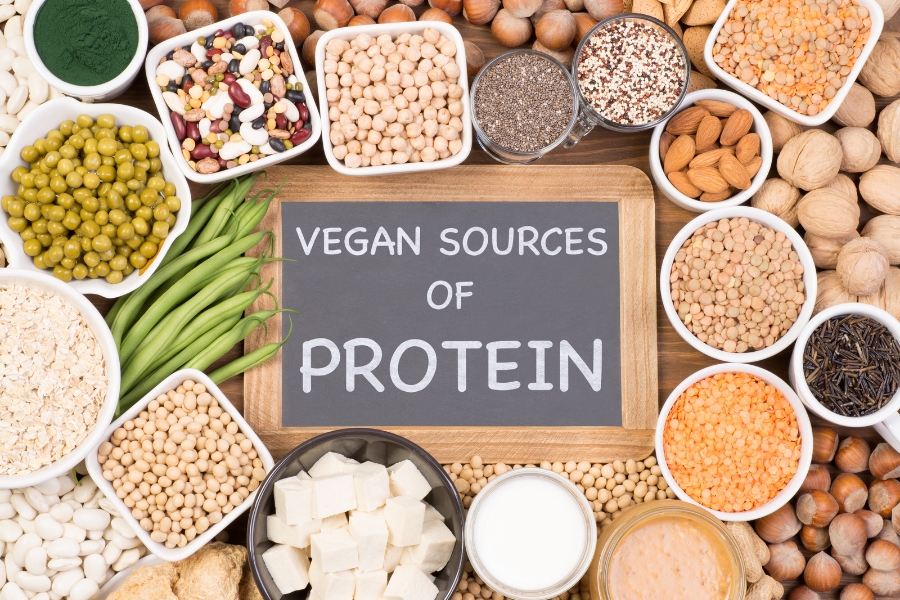
4. You Can’t Get Enough Protein From Plant-Based Diets
While animal products like meat, chicken, fish, eggs, and dairy are often seen as the go-to sources for protein, plant-based diets offer a wealth of protein-rich options as well.
Don’t underestimate plant power: All plants contain protein, some more than others, making it easy to get enough without eating any animal-based products.
It’s interesting to see how closely plant-based foods measure up to yogurt, cheese, eggs, fish, chicken, and beef in the protein stakes. Have a look for yourself:
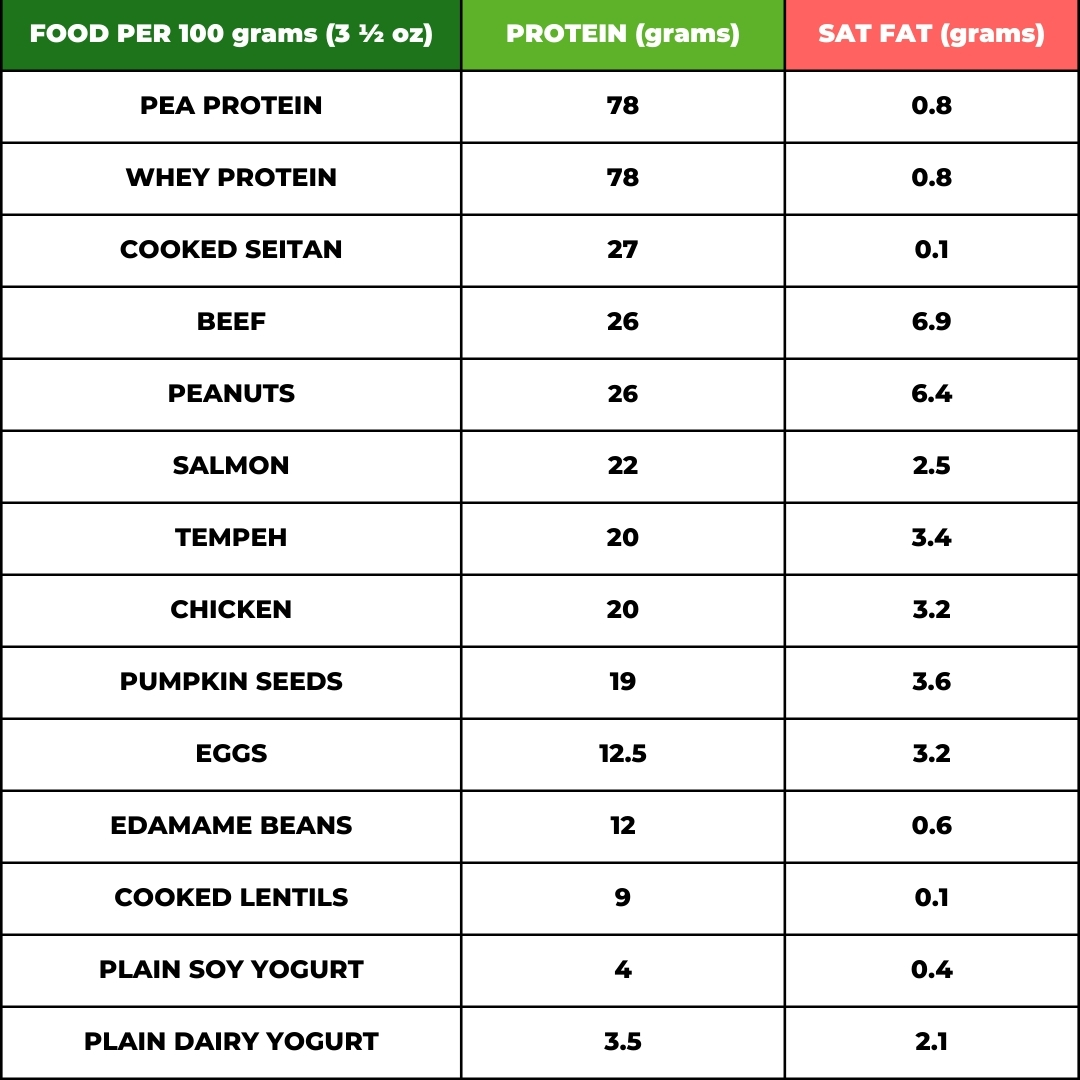
While animal-based products might be promoted as top for the amount of protein they contain, the type of protein you’ll get from plants is much kinder to your heart because plants are packed with fibre and much lower in saturated fat.
Additionally, if we eat more than around 30–35 g of protein in one sitting, our bodies can't process the excess and it gets stored as fat.
The average 68 kg adult needs about 54 g of protein daily. You easily get that amount (and more) in:
Breakfast: 1 cup of oats (6 g) + 30 g almonds (6 g) + 1 banana (1.5 g)
Snack: 1 apple + 1 tablespoon peanut butter (3.5 g)
Lunch: 2 tablespoons hummus (3 g) + ½ smashed avocado (2.5 g) + ¼ cup sundried tomato (2 g) + 1 slice Ezekiel bread (6 g)
Snack: 50 g air-popped popcorn (6.5 g) + 2 tablespoons nutritional yeast (5 g)
Dinner: 100 g tempeh (13 g) + 1 cup broccoli (4.5 g) + ½ cup cooked quinoa (4.5 g)
TOTAL PROTEIN: 64 g
Athletes, bodybuilders and other people with higher-than-average protein needs focus on plants with the most high-quality protein, including seitan, soya, nutritional yeast, hemp and chia seeds, nut butters, spirulina, lentils, chickpeas, quinoa, cruciferous veggies, greens, spinach and more.
5. You Need Dairy for Adequate Calcium
Another widely believed plant-based diet myth is that you need milk, cheese, and yoghurt for strong teeth and bones.
For some people it can be trickier getting all the calcium you need when you don’t eat dairy, but it’s definitely doable and can be easy when you up your intake of plants.
Soya foods are among the best plant sources of calcium. A cup of edamame (young beans) or 100 g of tofu with natural calcium phosphate each pack in more than a quarter (about 27%) of your daily calcium needs.
These plants will also help you reach your calcium target:
Beans
Chickpeas
Lentils
Almonds
Tahini
Chia and flax seeds
Amaranth and teff
Collard greens, turnip greens, broccoli, kale and spinach
Fresh and dried figs
Rhubarb
Oranges
Suppose you struggle to get your calcium from whole plant foods. Then fortified foods like plant-based milks, yogurts, cereals, breads, baked goods, and orange juices have you covered.
As a bonus, the amount of calcium you get from plant-based milk matches what you'd get from cow's milk, with a fraction of the saturated fat.
6. Vegan Diets Are Unhealthy
A Study that asked 510 people what they thought of vegans uncovered that there’s a widespread misconception that they look "unhealthy", "anaemic", "skinny", "with very little muscle", and have "circles under their eyes".
Now, this description doesn’t sound anything like the vegans with clear eyes, rosy cheeks, glowing skin, and well-defined muscles we see here at Vegan Susy!
One of the reasons we love debunking myths about the plant-based diet is that we want people to have accurate information on which to base their food choices.
So, let’s set the record straight.
Balanced vegan diets rich in whole plant foods are linked to better health, not worse. Plant-forward eating looks after our hearts, protects against some types of cancer, and reduces diabetes risk. Whole food plant-based diets also make it easier to lose weight.
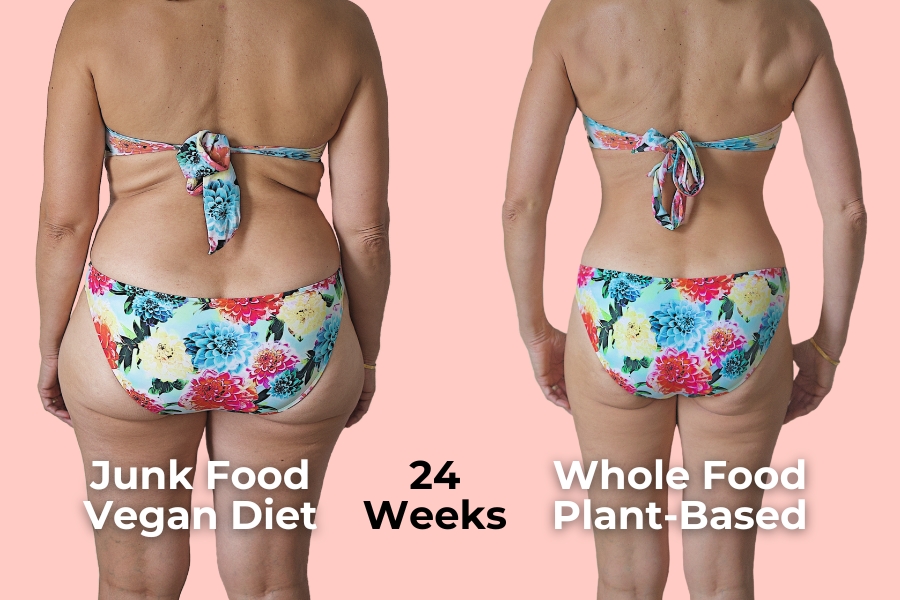
7. All Plant-Based Diets Are Healthy
Vegan diets can go wrong quickly if you randomly grab anything marketed as 100% plant-based whenever your tummy rumbles.
Countless ultra-processed foods contain no ingredients derived from animals. But many have almost no fibre, vitamins, or minerals, either. And they have calories, sugar, salt, and fat by the bucketload.
A diet of mainly whole plants has space for occasional tasty processed and packaged foods — but read labels and only munch those free from nasty ingredients.
Even whole-food diets become harmful when they lack variety. If you eat only, say, peanut butter sandwiches, you'll miss out on many nutrients that help your body run smoothly (though you would easily hit your daily protein target!).
Vegan alternatives are always the ethical choice, but they aren't necessarily always the healthiest of our choices.
While plant-based sausages are certainly healthier than their high-fat animal-based counterparts, they should be enjoyed occasionally rather than routinely. The same can be said of may vegan faux meats and cheeses, cakes and cookies, and so on.
Vegan alternatives to animal products are especially suited to those transitioning from an animal-based diet to a healthier plant-based way of living.
We still encourage the consumption of processed plant-food alternatives and vegan soul foods, following the 80:20 rule. This is where you prioritise consuming healthy vegan whole foods at least 80% of the time, allowing indulgences and occasional "naughty" treats up to 20% of the time.
Eating an assortment of whole plant foods is the trick to keeping vegan diets healthy.
8. Vegans Need Supplements
This is another of the top plant-based diet myths that can put people off vegan eating. The belief is that you'll become malnourished unless you glug iron and vitamin B12 supplements with your meals.
You don’t need pills when you can get these nutrients from food.
Turn to whole grains, pulses, seeds, dried fruit, and dark leafy greens for iron.
Vitamin B12 can be more challenging to get hold of because only some plants make this vitamin naturally.
Still, you’ll find B12 in the following plant-based foods:
Nori (the seaweed sheets that wrap sushi fillings into a neat parcel)
Other seaweeds and sea vegetables
Shiitake mushrooms
Nutritional yeast
Tofu and Tempeh
Kimchi and Sauerkraut
Other fermented foods
Beetroot (beets)
Potatoes and other root vegetables
Butternut squash
Spinach
Breakfast cereals and breads
Plant-based milks and yogurts
Yeast extracts and other foods that have been vitamin-B12 fortified
Interestingly, many omnivores can also find themselves deficient in Vitamin B12 and could also do with increasing their intake through fortified foods and/or supplements.
The Vegan Society recommends that to be on the safe side, vegans (and funnily enough many omnivores hiding in plain sight) should do one of the following:
Eat fortified foods 2 or 3 times a day to get at least three micrograms of B12 a day
OR Take one B12 supplement daily providing at least 10 micrograms
OR Take a weekly B12 supplement providing at least 2000 micrograms.
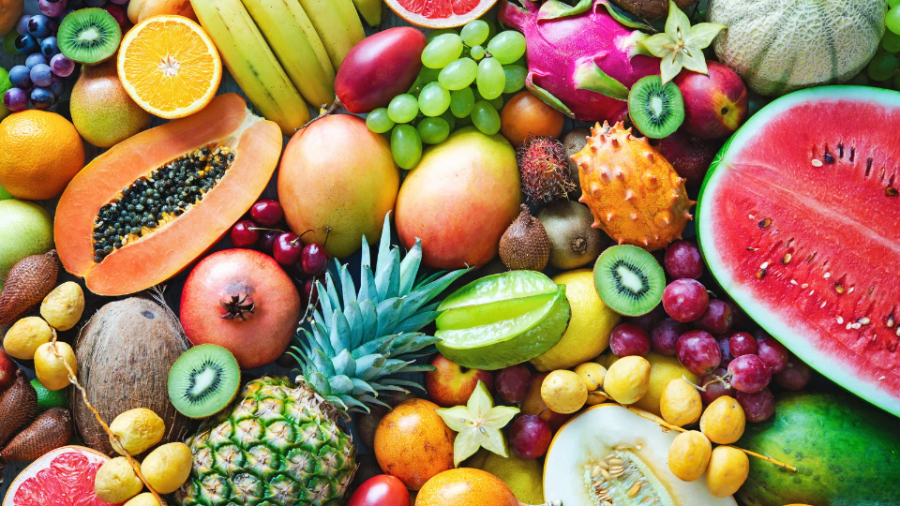
9. Plant-Based Diets Are Boring and Bland
Vegan Susy is passionate about debunking the myth that plant-based diets are uninspired and tasteless.
We show plant-lovers and plant-curious alike what intense flavours, vibrant colours, and tantalising textures this way of eating introduce.
Mexican-inspired vegan food is one of our all-time favourites — a terrific example of how exciting and yummy plant-based diets can be. We could eat spicy Huevos a la Mexicana (Vegan Egg) for breakfast every day.
Or how about comforting Mushroom Stroganoff, blissfully yummy Overnight Mocha Oats, or Roasted Creamy Tomato & Basil Soup with Chickpea Croutons? Tell us your mouth isn’t watering! We share how to make these and many more totally not boring and bland 100%-plant meals and snacks.
You could take your tastebuds on the most incredible adventure after you give up animal-based food. The variety at the heart of well-balanced vegan diets entices you to get creative in the kitchen. Go umami, tangy, spicy, or sweet with versatile plants as your base.
We’re fans of Dietitian and Nutritionist Dr Megan Rossi’s catchy concept of a full-flavoured Diversity Diet packed with plants. She encourages us to eat 30 different plants weekly for better gut health, and we wholeheartedly agree.
When you consider herbs, spices, and coffee count as plants, why stop at 30? Challenge yourself to double this number! Aiming to mix and match many plants at mealtimes will help you come up with can’t-get-enough combinations. What new plant, texture, or flavour fusion will you discover today?
10. Vegan Diets Aren’t Filling
If you worry that you'll always be hungry if you ditch animal-based foods, know it's a myth that plant-only diets aren't satisfying.
Well, some might give you constant cravings and snack attacks.
Again, watch out for diets high in fibre-stripped, sugar-, salt-, and fat-loaded ultra-processed foods. It’s easy to take in too many calories from these foods before feeling full. And they can trigger the munchies way before your next mealtime.
On the flip side, whole plants are scientifically proven to be filling. They tick all the boxes for foods most likely to keep you fuller for longer:
High in fibre
Water-dense
Source of healthy fats (essential fatty acids)
Give a good dose of protein
Studies say that some plants are the most filling foods you’ll find. Eat these to keep your appetite under control and the extra kilos off:
FILLING FOODS and why they're so satisfying:
Nuts – Boast protein, fibre and good-for-you fats.
Pulses (beans, peas, chickpeas, and lentils) – Contain protein, fibre and digest slowly.
Veggies & Fruits – Water-dense and crammed with vitamins, minerals, and fibre.
Frequently asked questions
Are plant-based diets too expensive?
No, veganism is growing globally, with increasing support from celebrities, sustainability concerns, and plant-based food options in stores and restaurants.
Is veganism just a passing trend?
No, a vegan diet can be affordable if you focus on whole foods like beans, lentils, and grains instead of pricey processed meat alternatives.
Can athletes thrive on a vegan diet?
Yes! Many elite athletes follow plant-based diets, which can enhance recovery and performance when well-planned.
Do vegans get enough protein?
Absolutely! Legumes, tofu, quinoa, and nuts provide ample protein, meeting the needs of both average individuals and athletes.
Do you need dairy for strong bones?
No, calcium is found in many plant foods like leafy greens, tofu, almonds, and fortified plant-based milks.
Conclusion:
Despite the myths claiming otherwise, vegan and plant-based lifestyles can be budget-friendly, protein-packed, calcium-rich, filling and super satisfying.
When well-planned and abundant in whole plant foods, these oh-so-tasty diets can give even the most active people's bodies everything they need to thrive and get healthier, and they're here to stay!
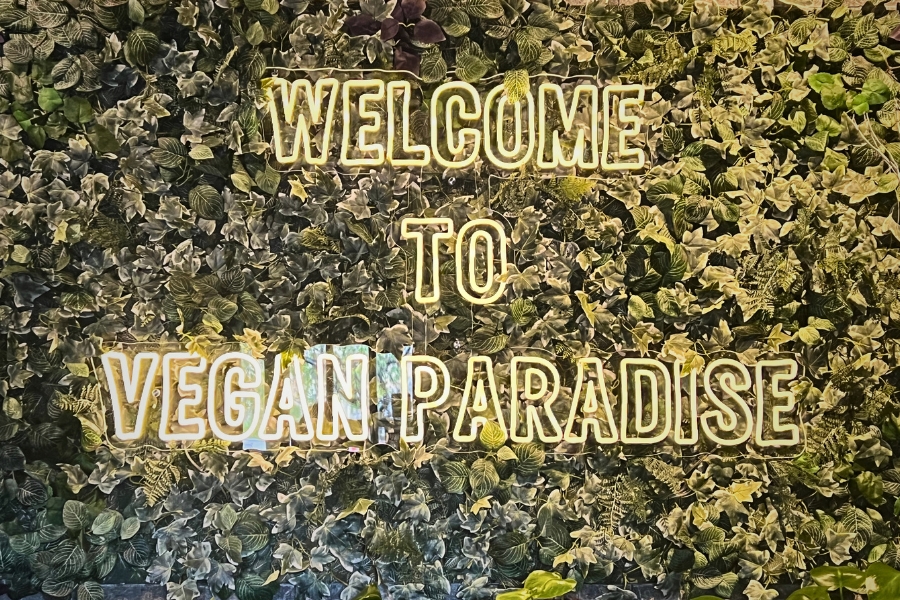
💚 "Happy Plant-Based Eating & Exercising!" 💚

Plant-Based Susy
Plant-Based Nutrition Professional & Weight Loss Coach
Empower Yourself: Embark on a Delicious Fat Loss Adventure

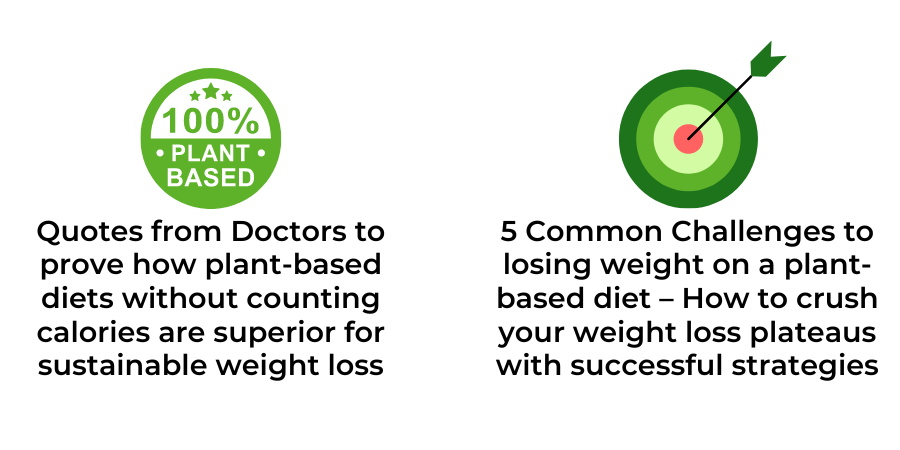
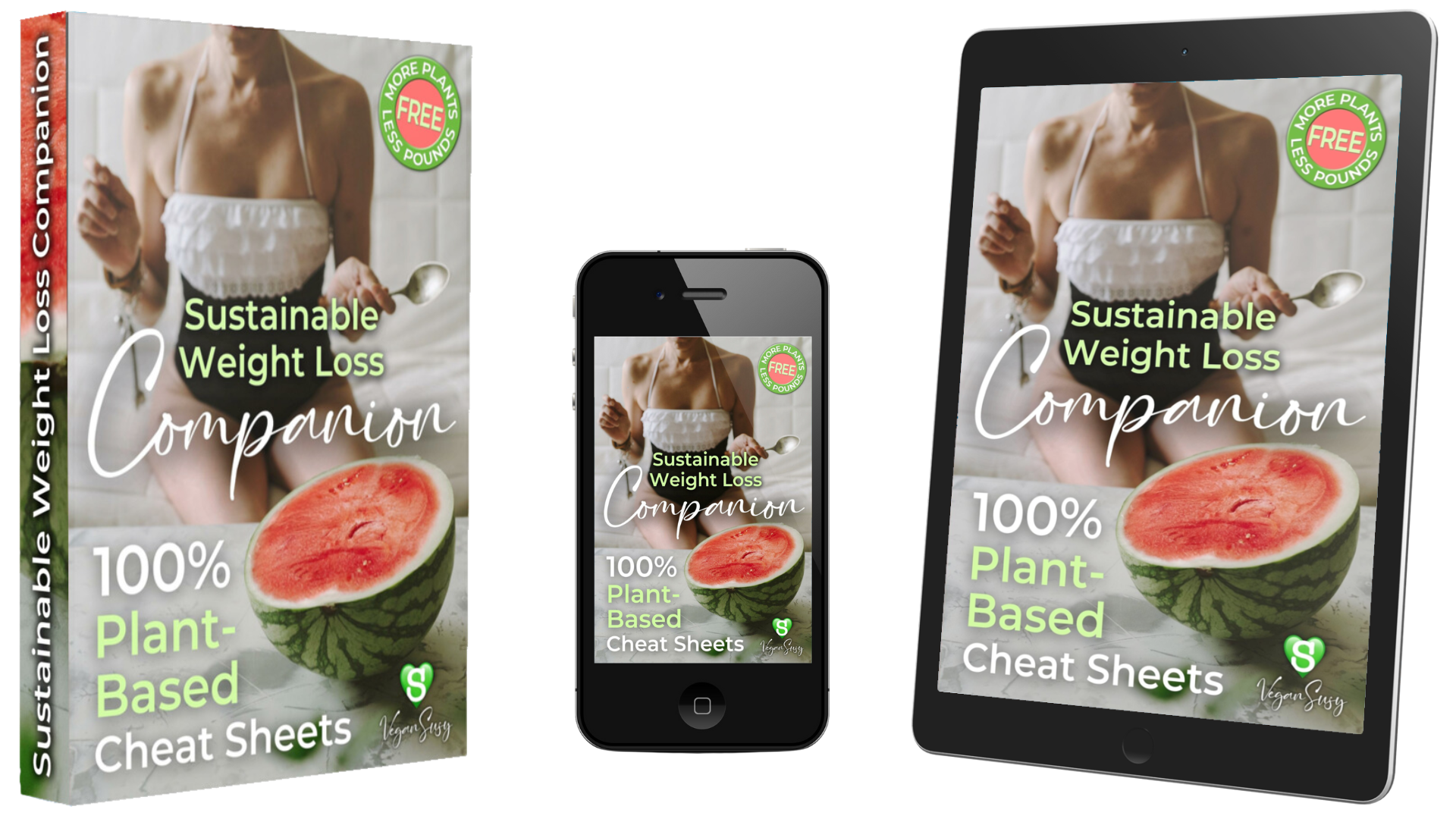
🍉 Get Ready to Jump Start Your Fitness Goals AND DISCOVER A HEALTHIER YOU!
🍉 Let's Make Your Fat Loss & Optimum Health Journey a Delicious Success Story!
🍉 Get The FREE Sustainable Weight Loss Companion eBook and CHEAT SHEETS!
More Free Resources
Unlock Your Transformation Today!
© 2025 VeganSusy Ltd. All Rights Reserved

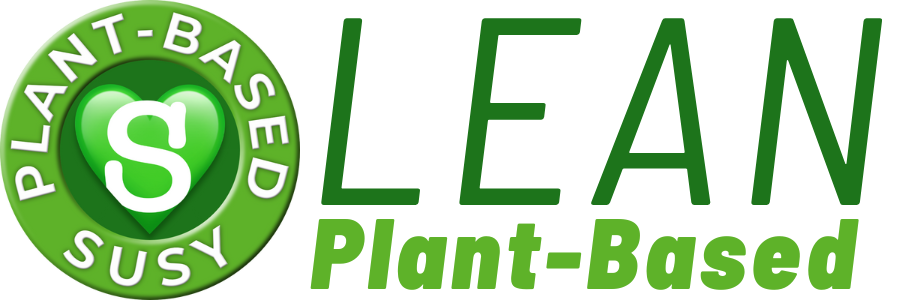
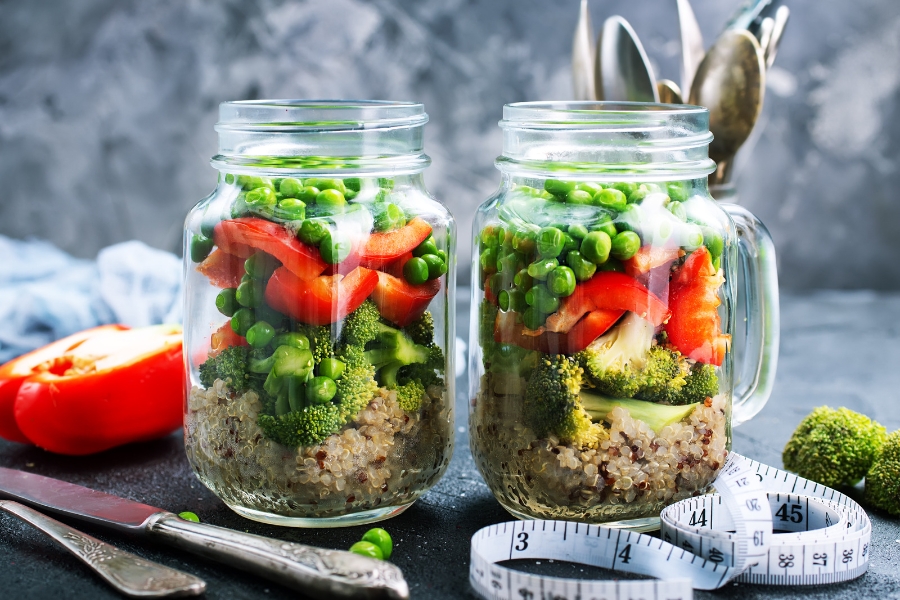
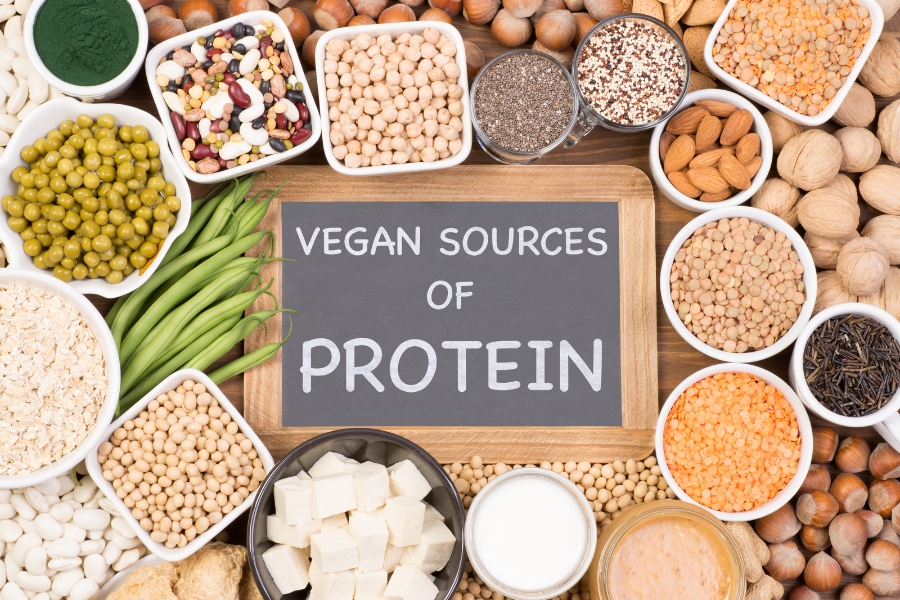

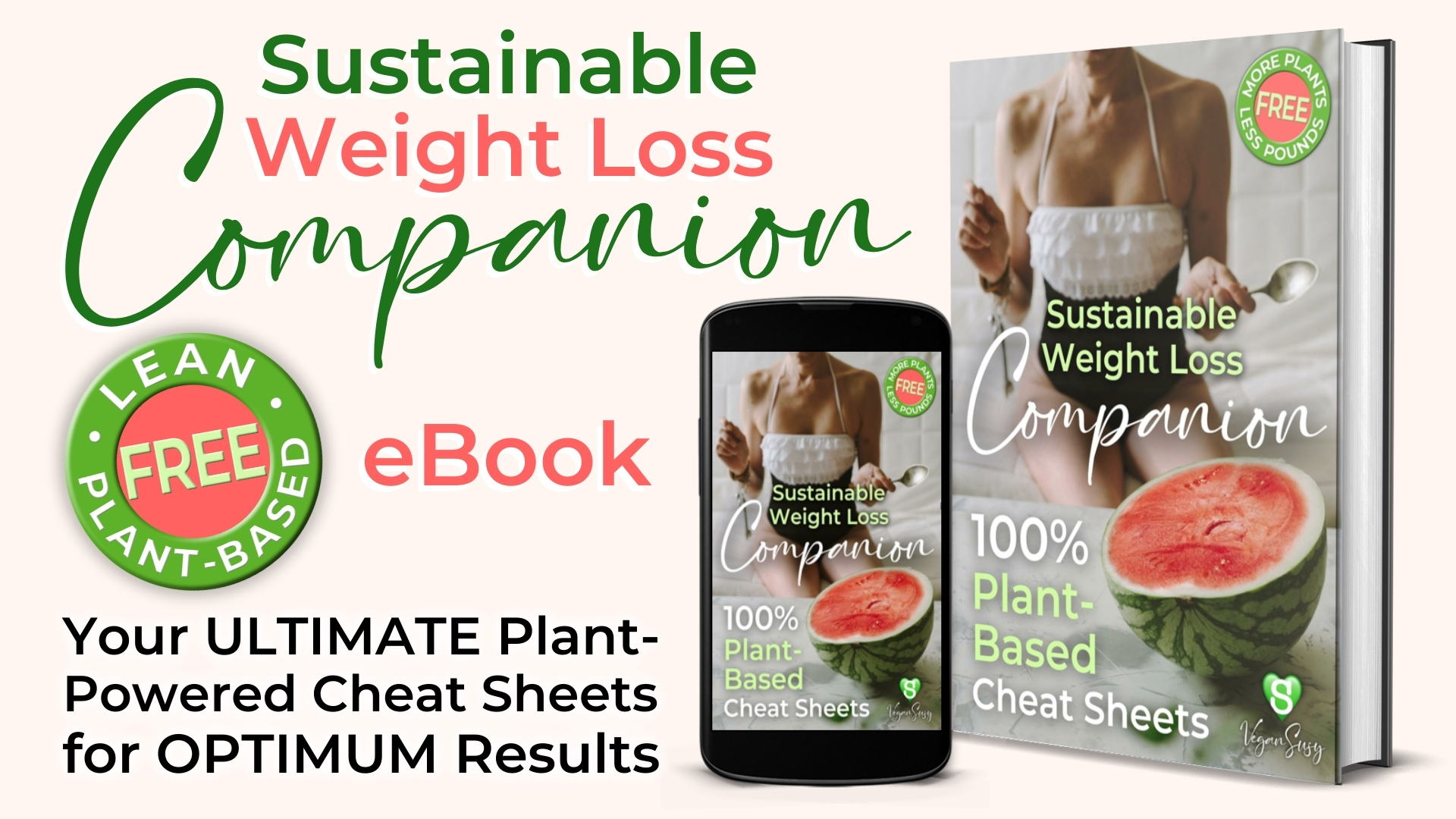





Facebook
Instagram
Youtube
Pinterest